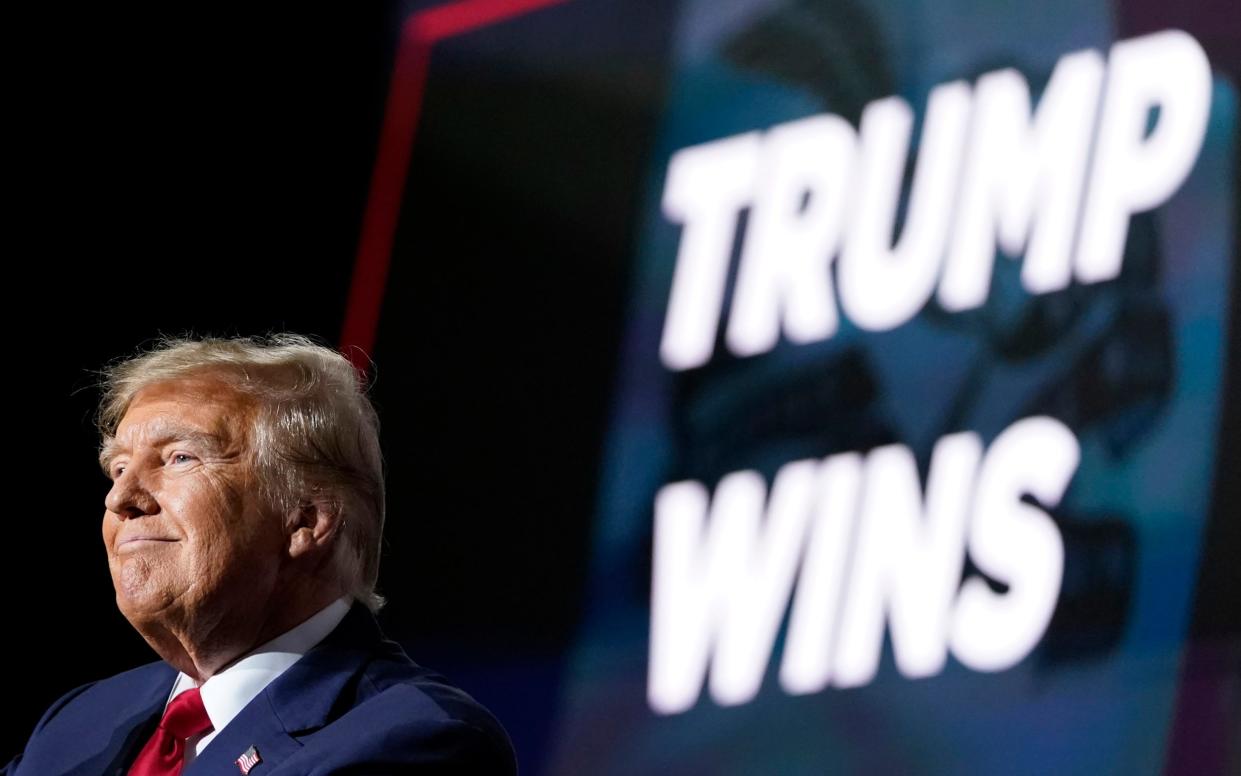Why university-educated Republican voters are backing Trump in 2024

Two years ago, Donald Trump’s ambitions for a second administration hung in the balance.
His refusal to admit defeat to Joe Biden in 2020 and the subsequent storming of the Capitol had been the final straw for some Republicans who wanted to reclaim their party.
The distaste for Mr Trump among non-MAGA Republicans was wavering to the extent he was being beaten in polls by the then up-and-coming Party star Ron DeSantis.
That year, more than three quarters of university-educated Republicans said they wanted a non-Trump candidate to take on Joe Biden in the 2024 election.
Fast forward to today and the political landscape has shifted yet again, with some degree-educated Republicans circling back to get behind Mr Trump.
The former president’s landslide win in Monday night’s Iowa caucuses handed him 51 per cent of the vote, beating Mr DeSantis by 30 points.
While the majority of the former president’s support in Iowa came from his watertight base of non-educated voters, he made a 16-point gain among university-educated voters when comparing the CNN entrance polls with the 2016 caucus results.
A 2022 Suffolk University/USA Today poll found 76 per cent of university-educated Republican voters wanted a non-Trump Republican to be the party’s presidential nominee.
The same pollster earlier this month found 60 per cent of Republican voters with a university degree supported the former president.
So why are educated Republicans making about turns to support Mr Trump?
The Biden factor
Dante Scala, a professor of political science at the University of New Hampshire, thinks the combination of a distaste for Joe Biden and concerns over the economy and immigration have prompted voters to revert back.
“You could point to Biden as one reason,” he said.
“Also, I think issues that we hear … immigration, the economy, inflation, all those things I think leads a lot of those voters to say, ‘You know, things were actually pretty good during that Trump presidency. Can we go back to that?’”
Mr Scala said adverts by the Trump campaign in New Hampshire often focused on the question of, “Don’t you remember how it was when things weren’t so out of control?”
“I think a lot of college-educated Republicans say, ‘Yeah, he tweeted too much, he was out of control sometimes, but there was strength there,’” he said.
The issue of border security and migration looms large ahead of this year’s general election.
The crisis has spread from border towns and states into cities including New York and Chicago as they struggle to cope with the influx of migrants.
Mr Trump has already begun weaponising the issue with descriptions of migrants entering the US as “poisoning the blood” of the country, language which has come under staunch criticism from Mr Biden who likened the comments to those heard in Nazi Germany.
David Paleologos, the director of Suffolk University’s Political Research Center, said the economy and migration are Mr Trump’s “issues”.
He said while a few years ago there was “more of a runway of opportunity” for others to enter the race, as time has gone on Mr Trump has consistently been at the top of the polls.
“Some of these voters have put themselves under the Trump banner because they have serious issues about the economy or immigration that they don’t feel are being solved by president Biden,” he said.

Mr Trump’s policies helped win over Iowa caucus-goer Eric von Muenster.
Mr Muenster, a college-educated account manager at the chemicals giant BASF, said he was curious about Nikki Haley’s campaign but would be voting for Mr Trump ahead of Monday night’s caucus.
He said: “Trump is my guy right now. I like his policies. He’s got great policies, and he’s a fighter. I like Nikki too, so if something happens to Trump, I’m gonna consider Nikki.”
Mr Paleologos said while some university-educated voters may have initially had concerns about Mr Trump’s mounting legal woes and his “viability”, many of these have now faded away.
“As time has gone on, with none of these legal cases showing a conviction … you have a scenario where those concerns have been put aside,” he said.
Mr Trump’s many legal battles may have also won him support from people who believe the Department of Justice is going after Mr Trump because he’s Mr Biden’s opponent.
Amy Koch, a Republican analyst and former senator, said that while she thinks the idea of educated Republicans flocking to Mr Trump has been “overblown”, she thinks the attempt to take him off the ballot has left a “bad taste” in some people’s mouths.
Ms Koch said people have also “become almost numb” to the controversies facing Mr Trump.
“I used to say it was like, if you step on one nail, it goes to your foot, it’s very painful. But you can lay down on a bed of nails, because there’s so much and that’s almost like, that’s kind of how I viewed the Trump stuff,” she said.
“If it weren’t so serious it would be fascinating to watch.”

 Yahoo News
Yahoo News 
